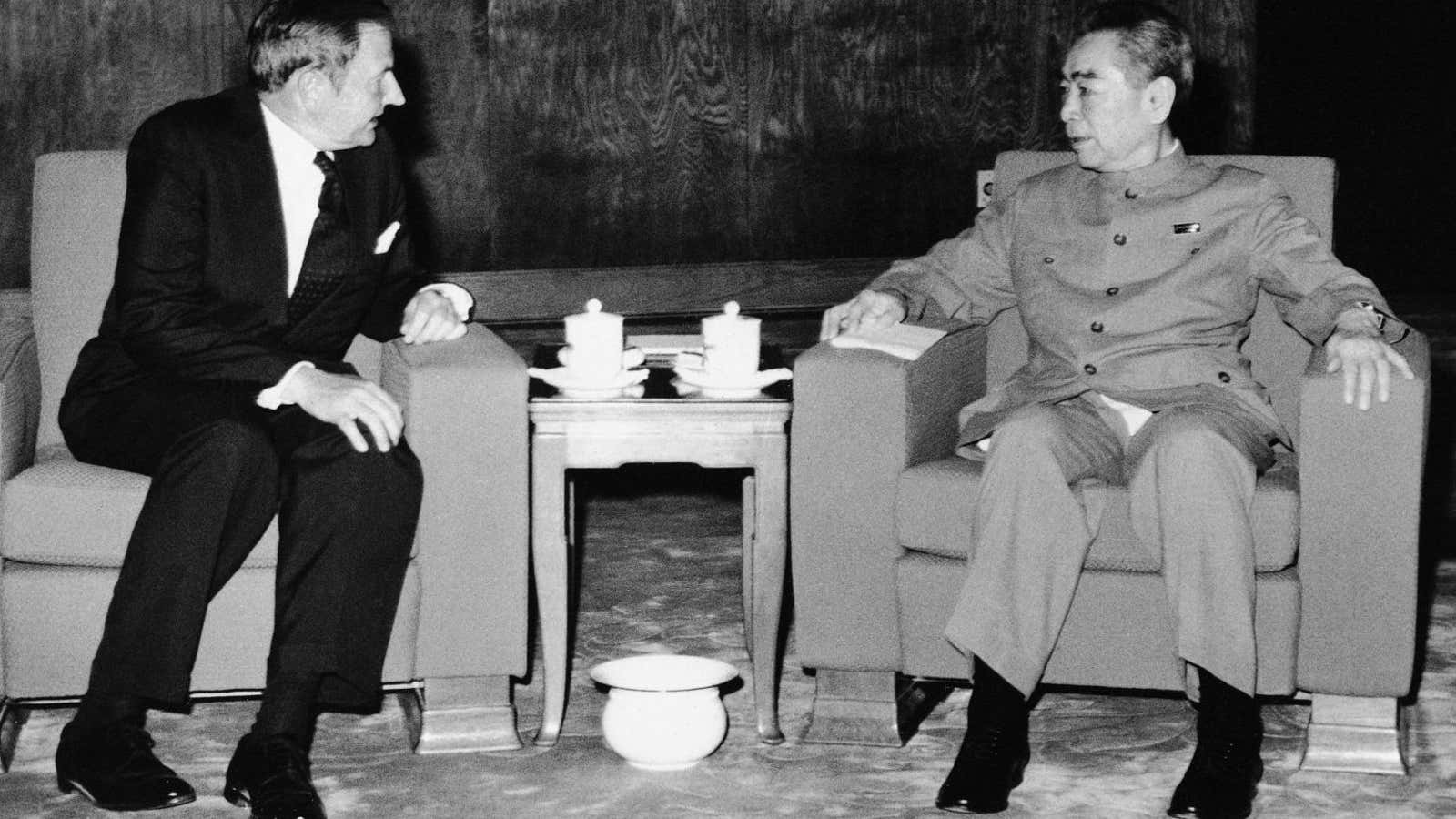When David Rockefeller was born more than a century ago, his family name conjured up the worst ruthlessness and commercial depravity of the Gilded Age, a reputation forged by the practices of his grandfather, John D. Rockefeller, America’s original oil titan.
But upon David Rockefeller’s death today (March 20) at the age of 101, the family’s reputation could hardly be more cleansed. In a career that included global banking, spying, statesmanship, and diplomacy, he helped to transform the Rockefeller name to one associated with philanthropy of the highest order. He personally gave away more than $900 million, with much more to be donated now that he is gone.
Born in 1915, four years after the US Supreme Court-ordered breakup of Standard Oil, Rockefeller grew up as the supremely confident heir to one of the world’s great fortunes. He went on to serve as an Army intelligence officer in World War II, a post-war diplomat in Paris, and finally CEO of Chase Manhattan Bank, and one of the world’s most important financiers. Rockefeller was said to have had the ear of every US president since Dwight Eisenhower.
It was a life of power and influence matched in some ways only by monarchs and the heads of nation-states, affecting global politics, economics, finance, and the arts. Under his tutelage, Chase became the first US bank to operate in countries once closed to American institutions, such as communist China, the former Soviet Union, and post-Nasser Egypt.
His mother, Abby, who gave financial support to liberal–and especially women’s—causes such as labor unions, Planned Parenthood, and hospitals, was a great influence in shaping his choices outside of business, according to Titan, a biography of the grandfather by Ron Chernow. His mother was also the main force behind the establishment of New York’s Museum of Modern Art, among the world’s premier repositories of works from the 20th century forward.
Young David collected beetles in a collection that eventually reached 40,000 specimens. Rockefeller’s bond to his grandfather began early. From Chernow’s book:
Smart, docile and cherubically round-faced, he was adored by [his grandfather], who loved to croon carols with him at The Casements. As Rockefeller told his son after one of David’s holiday visits, “He is a worthy son of worthy parents, and his grandfather dotes on him.” David reciprocated the affection, calling his grandfather “the least dour man I’ve ever known, constantly smiling, joking and telling shaggy dog stories.”
In the post-war period, Rockefeller took his grandfather’s name to global renown. He had one of the world’s best Rolodexes, amounting to some 150,000 names, which he used to hob-nob with almost anyone he liked, and to solve big public problems. Like JP Morgan, the global financier whose namesake firm would eventually merge with Chase, Rockefeller sometimes seemed to carry the world’s economic wherewithal on his shoulders, stepping in for example in the mid-1970s to rescue the city of New York from fiscal calamity.
And, strangely, the Rockefeller name went full circle, and today is associated with efforts to bring down the source of the family fortune. The Rockefeller Family Fund, set up by David Rockefeller and his brothers in 1967, is dedicated in part to weaning the world off of oil—and of attacking ExxonMobil, the heir to his grandfather’s creation, Standard Oil.
